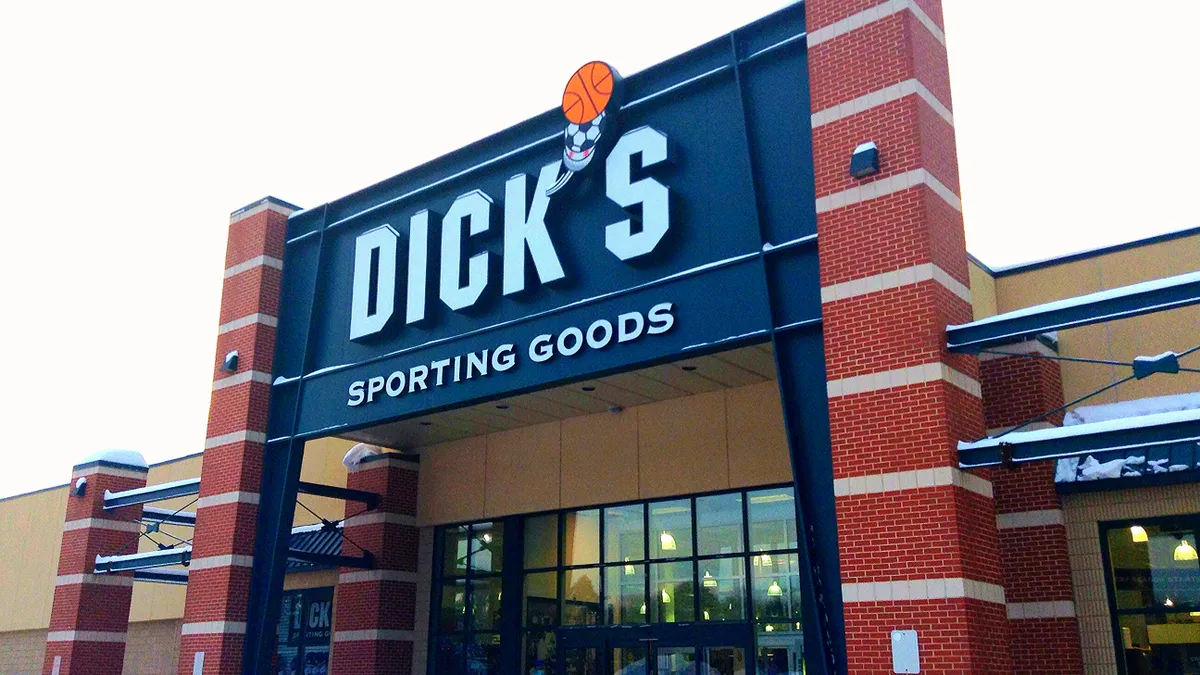Dive Brief:
-
Dick’s Sporting Goods has revised its price-matching policy to now include Amazon and other online retailers; the retailer’s list of qualifying rivals now includes Walmart, Cabela’s, Nike and Kohl’s (including their websites), among others. But that doesn’t include “Warehouse clubs,” according to the company’s website.
-
The policy does not extend to store-wide sales or red-letter events like Black Friday, and in order to qualify for price match the item in question must be the same brand, same model number and same color at another store. Shipping and delivery charges are not matched, and a competitor must have the item in stock for its price to be matchable.
-
Last month eBay announced it would match prices against its online competitors on more than 50,000 items for U.S. buyers. Walmart, meanwhile, has scaled back price matching in 800 of its 5,000 U.S. stores.
Dive Insight:
Gone are the days when online prices were guaranteed to be significantly cheaper than the prices at physical stores. There was a time when Walmart, for one, wouldn’t even match its own online prices, but times have changed. As traditional retailers have launched websites of their own and pure-play retailers have bowed to pressure to show profits, online and offline prices are increasingly more in sync.
These days, shoppers are more likely to find incentives like free shipping or in-store pickup of online orders than major differentials in online prices. Walmart, eBay and others have also taken to pointing out in marketing materials that their free shipping policies don’t require a membership, a dig at Amazon’s $99 annual Prime membership fee.
Walmart appears to be swimming against the tide when it comes to price-matching. In addition to Dick’s and eBay, Target, Bed Bath & Beyond, Best Buy, Home Depot, Lowe's, J.C. Penney, Kohl's, Sears and Toys "R" Us are all among those retaining such policies. Walmart spokesperson John Forrest Ales told Retail Dive last year the price-matching is ending mostly because the retailer is confident that it already has the lowest prices. The ad-matching policy has more to do with price roll-backs on thousands of items at the affected stores, in several departments, which he said would negate the need for ad-matching.
All this underscores how important price continues to be in retail competition for traffic and sales. "[I]t is clear that retailers are working hard to attract shoppers with many resorting to discounting to stimulate buying," GlobalData Retail Managing Director Neil Saunders said in an email to Retail Dive earlier this month. "While this is good news for consumers, it is bad news for margins and will dampen growth levels. Such a dynamic may be exacerbated by further bankruptcies in the sector and the consequent stock liquidations that follow.”















